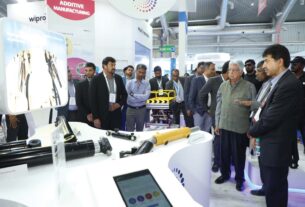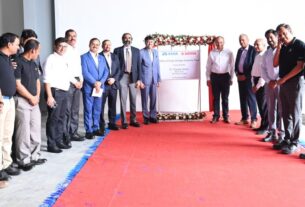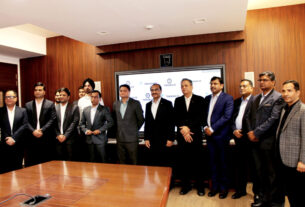ENNOVI has been at the forefront of India’s electric mobility revolution, driving innovation in battery interconnect solutions and supporting the country’s transition to sustainable transportation. With a strong commitment to local manufacturing, advanced technology, and environmentally responsible practices, the company is playing a key role in shaping the future of EVs in India. In this interview with N. Balasubramanian, Satvinder Singh Sabharwal, Director – India Sales and Marketing, ENNOVI, shares insights on the company’s rapid growth, its cutting-edge solutions for OEMs, and how it is addressing key challenges such as charging infrastructure, battery efficiency, and regulatory frameworks. He also outlines ENNOVI’s vision for the next phase of India’s EV transformation.

The electric mobility revolution in India has been steadily gaining momentum over the past 25 years, and ENNOVI has been an integral part of this journey. As climate change and resource scarcity intensify the need for energy-efficient solutions, India has strengthened its commitment to electrification and sustainability. ENNOVI, with its deep-rooted industry expertise and strong customer relationships, has been at the forefront of this transformation. “Our business in India has tripled in just five years, a testament to the immense potential of this market and the value our tailored EV solutions bring to OEMs,” says Satvinder Singh Sabharwal, Director – India Sales and Marketing, ENNOVI.
Navigating India’s Rapidly Expanding EV Market
India’s EV sector is set for significant growth, with the government aiming for 30% EV adoption by 2030. Key initiatives, such as the Prime Minister E-Mobility Drive, have provided a robust foundation for industry expansion. However, transitioning from conventional combustion engines to electric vehicles presents unique challenges and opportunities. “EV designs use fewer parts but require more advanced connectivity. Our interconnect solutions are vital in ensuring seamless, reliable communication between vehicle subsystems, charging stations, and connected applications,” Sabharwal explains.
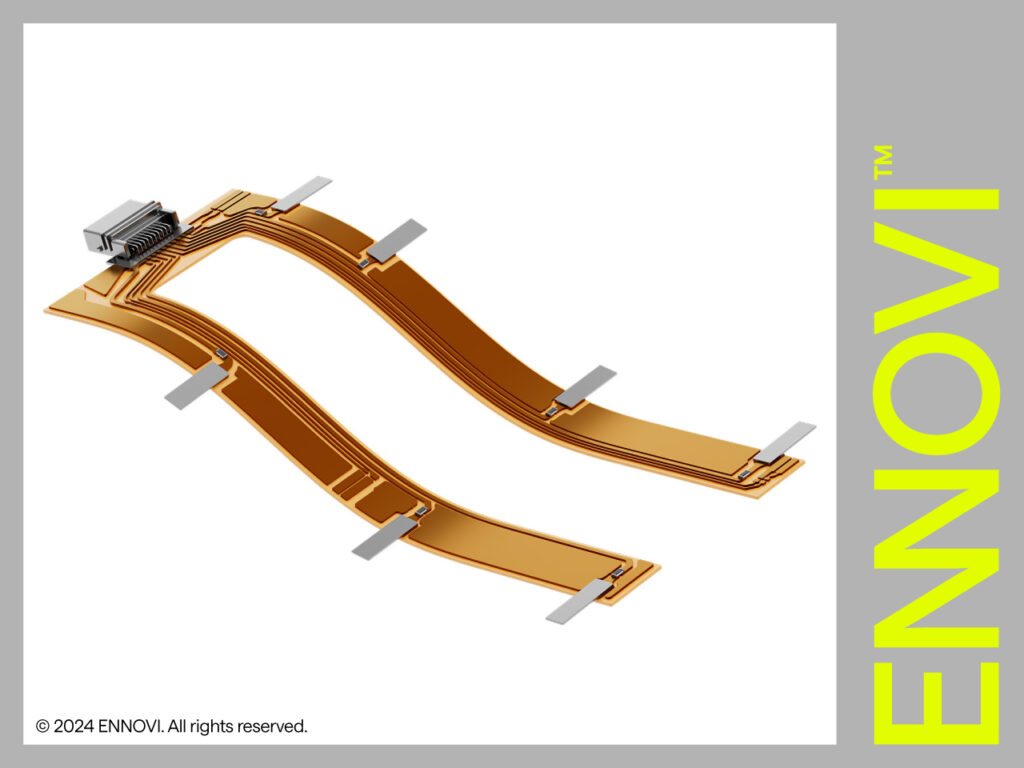
India’s diverse climate conditions further emphasize the need for durable and high-performance EV technologies. “From freezing northern temperatures to extreme southern heat, our EV systems must withstand varied conditions. That’s why ENNOVI is committed to developing interconnect technologies that enable real-time monitoring, predictive analysis, and intelligent system management,” he adds.
Pioneering Cutting-Edge Solutions for Indian EV Manufacturers
ENNOVI has introduced a range of innovative interconnect solutions tailored specifically for the Indian market. Its advanced battery and vehicle system interconnects enhance the efficiency and reliability of swappable rechargeable battery systems, supporting both 400V and high-power 800V architectures. “While many global markets focus on 4-wheel EVs, India sees significant demand for 2-wheelers and 3-wheelers. We ensure our solutions cater to this unique requirement,” notes Sabharwal.
One of ENNOVI’s standout innovations is its Cell Contacting Systems (CCS), which enhances the structural integrity and longevity of EV battery modules. By eliminating the need for plastic trays, this technology significantly reduces manufacturing cycle times and environmental impact. Additionally, the company has introduced flexible die-cut circuits (FDC) as an alternative to flexible printed circuits (FPCs), supporting the growing demand for prismatic cells in 4-wheeler powertrains.
Commitment to ‘Make in India’ and Sustainable Manufacturing
With India prioritizing sustainability and local manufacturing under initiatives like ‘Make in India,’ ENNOVI is playing a key role in fostering a green and selfreliant EV ecosystem. “We support OEMs in designing energy-efficient vehicles while ensuring environmentally responsible manufacturing practices,” says Sabharwal. The company has committed to ethical sourcing, with over 90% of its operations now powered by renewable energy. “By following sustainable supply chain practices, we’re actively contributing to India’s transition toward a green automotive sector,” he adds.
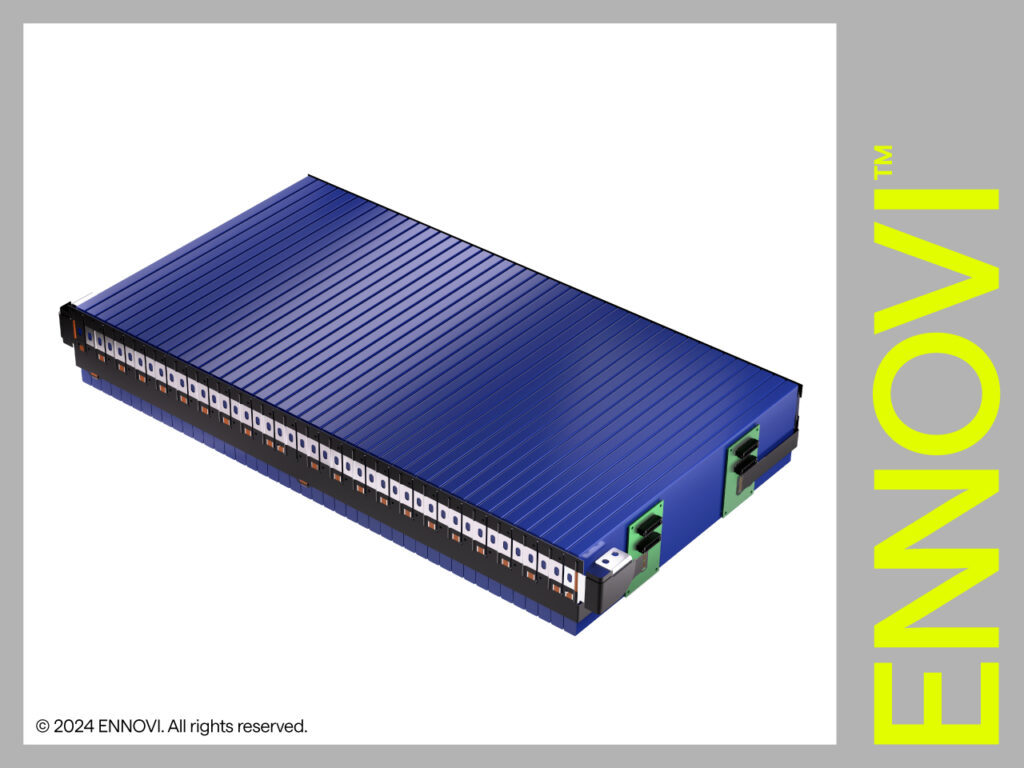
Beyond sustainability, ENNOVI is strengthening local manufacturing by leveraging its India-based technology center. “Our R&D center taps into exceptional local engineering talent to develop scalable, cost-effective EV solutions that align with the needs of Indian OEMs. We also engage in regulatory discussions, supply chain enhancements, and manufacturing initiatives to build a robust EV ecosystem,” Sabharwal emphasizes.
Future-Focused Innovations and Market Expansion
Looking ahead, ENNOVI remains focused on introducing new technologies to help OEMs stay competitive. One of its key developments is the introduction of flexible laminated technology for battery interconnects. “This innovation simplifies assembly, enhances quality, and speeds up development, offering a cost advantage to OEMs,” Sabharwal states. The company is also set to launch an upgraded version of laminated interconnects that eliminates glue, reducing costs and environmental impact. “These solutions are particularly suited for India’s 2-wheeler, 3-wheeler, and 4-wheeler segments,” he adds.
As India’s EV sector continues to evolve, challenges related to charging infrastructure and reliability remain crucial. “We’re actively working on solutions to improve EV reliability and charging networks, leveraging government support, battery efficiency advancements, and consumer trust-building measures to accelerate EV adoption,” Sabharwal notes.
ENNOVI’s Vision for the Next Five Years
India’s immense EV market potential sets the stage for ENNOVI’s ambitious growth plans over the next 3–5 years. “We aim to lead the EV transition by delivering cutting-edge battery interconnect technologies, power interconnects, and customized signal interconnects,” says Sabharwal. The company is focused on developing cost-effective products that align with the automotive industry’s broader vision of sustainability and energy efficiency.
Standardizing EV infrastructure, implementing region specific strategies, and promoting sustainable practices such as battery recycling will be crucial to India’s EV growth. “We are addressing charging infrastructure challenges with standardized protocols, ensuring a seamless EV experience across urban, semi-urban, and rural areas,” Sabharwal explains. Additionally, ENNOVI is advocating for clear regulations on battery recycling and disposal to enhance long-term sustainability.


